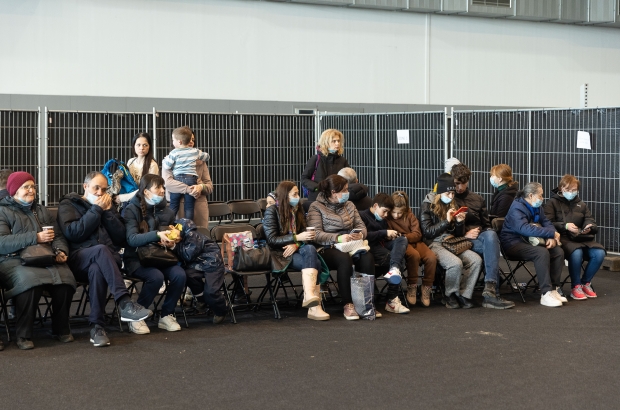- Daily & Weekly newsletters
- Buy & download The Bulletin
- Comment on our articles
Belgium welcomes fewer Ukrainian refugees than first predicted
Fewer Ukrainian refugees than first predicted have arrived in Belgium since the beginning of the war with Russia, Bruzz reports.
At the beginning of the war in February, projections by the United Nations High Commissioner for Refugees (UNHCR) showed that as many as 200,000 Ukrainians could head towards Belgium after fleeing the conflict ravaging their country. Of these, 20,000 (or 10%) were expected in the Brussels region alone. Almost three months after the start of the conflict, the situation looks very different.
Estimates suggest 78,000 refugees have arrived in Belgium, of whom 40,000 have already been housed. At the beginning of May, it was reported that 8,000 Ukrainians have settled in Brussels according to the cabinet of Rudi Vervoort, the minister president of the Brussels Capital Region. It's a figure lower than the 20,000 arrivals expected, but which is still proportionally higher than the rest of the country, mainly due to the Ukrainian diaspora in the capital and the services available.
"In the beginning, different scenarios were drawn up and 200,000 was the high figure," said a spokesperson for Sammy Mahdi, federal state secretary for asylum and migration. "Now we start from the middle scenario."
Even if revised downwards, these figures nevertheless spotlight the housing supply in Brussels, which has been shown to be notoriously insufficient and which could not absorb the 5-6,000 or so refugees that have arrived since the war began.
"That is why I supported the call of the Ukraine coordinator of the Brussels government to provide 150,000 square meters of "offices, facilities and other spaces" that can easily be converted into temporary housing for Ukrainian refugees," Vervoort told the Brussels parliament on Monday.
In the same session, Bernard Clerfayt, Brussels minister of local authorities, announced the granting of a subsidy of €10 million to the municipalities to support them in the creation of accommodation for refugees. The government is looking at projects that can accommodate between 30 and 2,000 refugees.



















